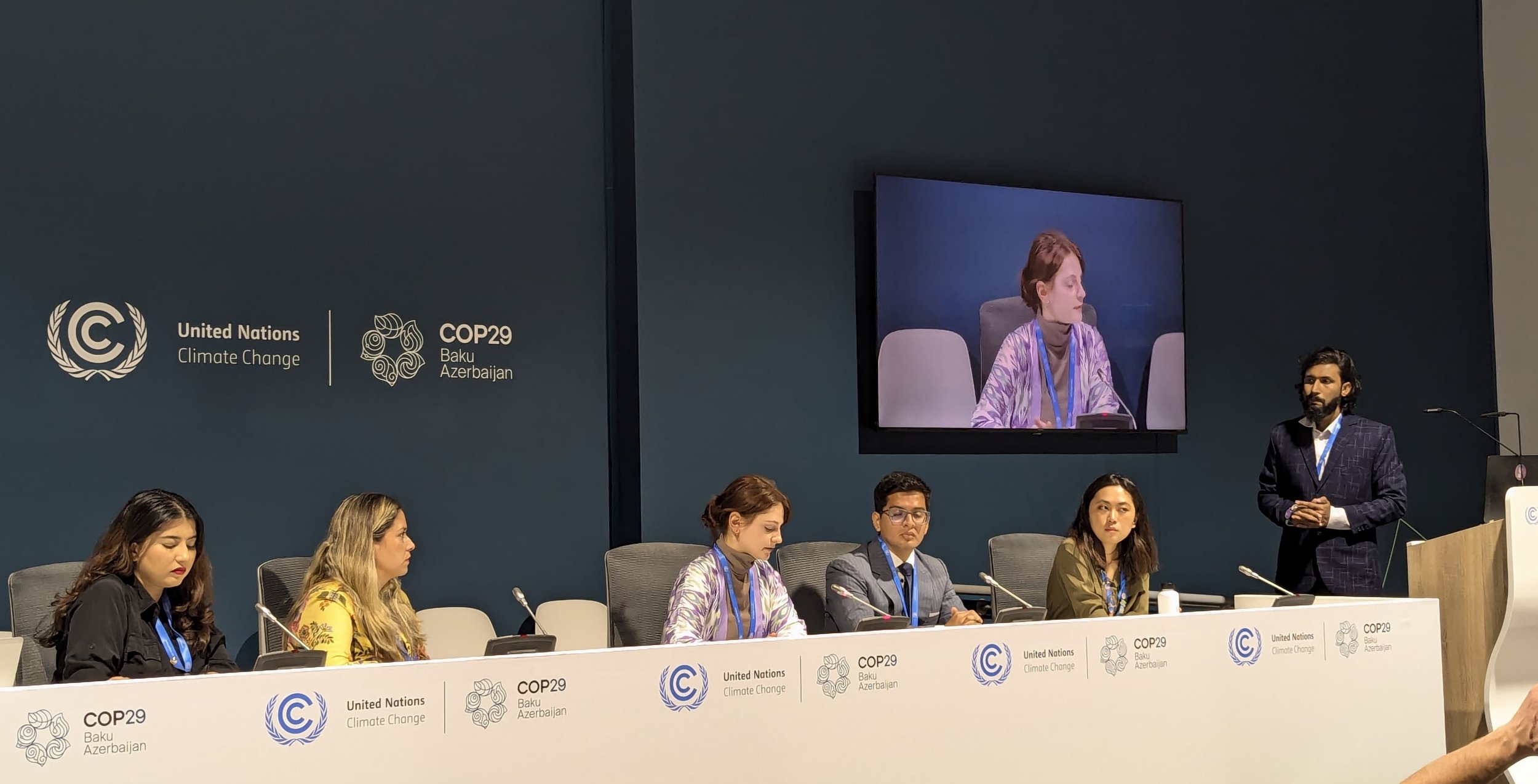Ikram, Y4N Global Ambassador from Morocco, takes us on a journey into Samedi Scientifique (Scientific Saturday). This project brought primary school children to visit farms to introduce them to agroecology, environmental protection, and the deep connection between nature and community!
Impact of COVID-19 on Youth in Agribusiness: A Case Study of Zimbabwe
This blog post provides an overview of the impact of COVID-19 on youth in agribusiness in Zimbabwe. It highlights key findings and offers insights from 5 government-led relief initiatives, and suggests potential solutions to not only rebuild youth leadership in agribusiness in the country, but to support sustainable practices for climate and biodiversity as well.
Nature at work (or at risk): health, resilience, recovery and relief meet air, water, and food systems at Cop28
Just Released: Y4N's Private Sector Engagement Toolkit
Introducing the Private Sector Taskforce
Solving global problems requires active engagement with the private sector. It is time for the private sector to step up to current and future challenges. We need them on board constructively as partners without constant opposition. At Youth4Nature, we feel that it is our duty to do something to improve the current situation. Meet the Youth4Nature Private Sector Taskforce and get to know what they’re up to and how you can get involved.
#PhotoChallenge: October 2021
October, a month of action, action and more action!
We come to you from our different countries, to showcase what we have been upto in the past weeks, what we are doing, or even our inspiration to keep acting for nature, climate and communities this month. From a water related poem to a walk in the escarpments of the Great rift valley, climate strikes to the mountain activities, we present to you our warmth to keep you motivated.
Enjoy our October #PhotoChallenge with us!
Pollinators For Our Survival Webinar Series Summary
The Pollinators For Our Survival webinar series drew a great deal of focus towards the significance of pollinators responsible for the survival and existence of our food systems, and ultimately for humanity. The three packed series took a deep dive into the significance of pollinators; further taking into account their conservation value and status in a 21st century world. Read on for a summary of the series and how to learn more!
Reflect with Us: State of Pollinators in Polluted Environments
Have you ever wondered what the fate of pollinators -mostly bees- is in polluted environments? Are bees really on the rise, or on a deep decline? What are the drivers, and what are the experiences like, for farmers who spent most time with these little friends? This is what we embarked on during our second webinar in the Pollinators for our Survival series. Gathered from…
The Double-Edged Nature of Land: A Practical Analysis of the IPCC's Special Report on Climate Change and Land
“[…] the IPCC’s SRCCL shines light on interlinked global challenges like climate adaptation and mitigation, desertification, land degradation and food security, whilst suggesting land-related actions/NBS that can mutually benefit all these areas. Whilst much of the current discussion misguidedly focuses on singular individual lifestyle changes, just like with the Special Report on 1.5C, we urgently need large-scale and context-dependent action that is participatory, inclusive, multi-sectoral, and actively considers ecological, social, economic, cultural and institutional factors.”













